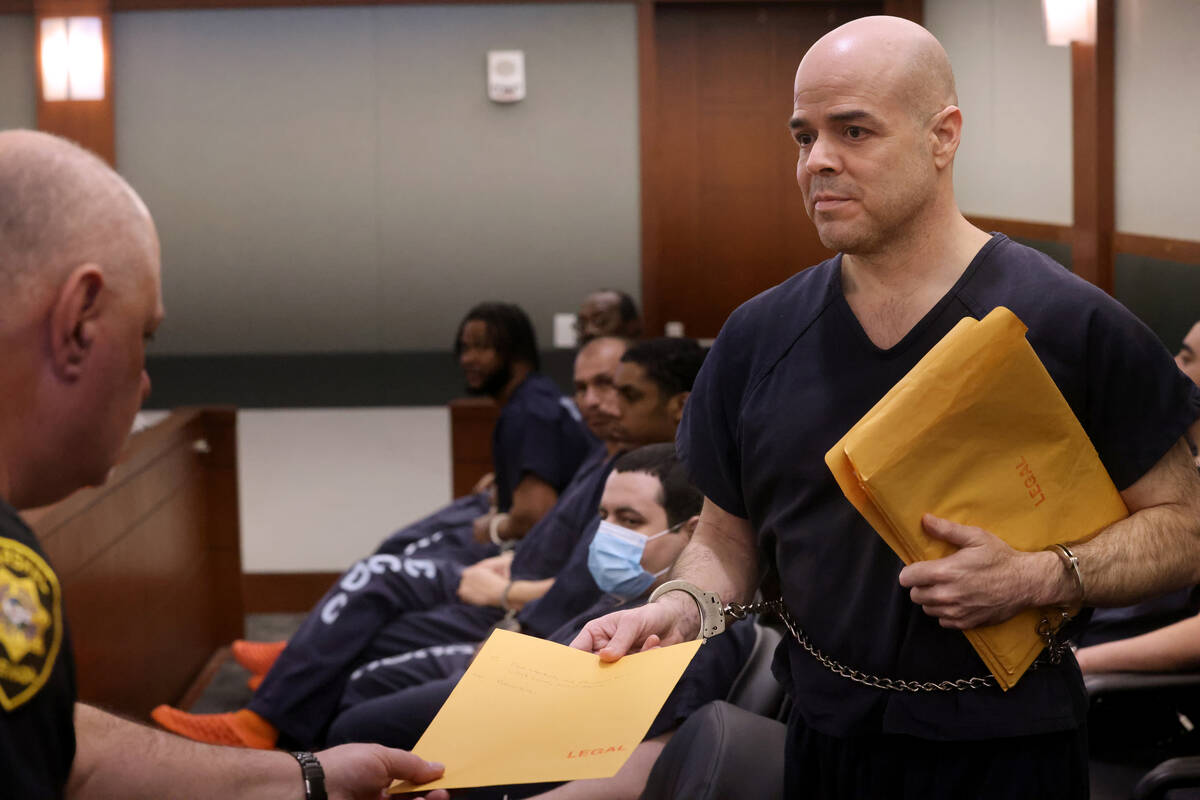Murder suspect supports RJ’s plan to search slain reporter’s phone

Former Clark County Public Administrator Robert Telles, who is accused of killing Las Vegas Review-Journal investigative reporter Jeff German, has agreed to the news organization’s proposal for searching German’s cellphone and personal computers in connection with the murder case.
The development, revealed in court documents filed Monday, could avert a historic challenge to Nevada’s reporter shield law and prevent the disclosure of German’s confidential sources to police and prosecutors, who want to conduct an unrestricted search of German’s devices. The Review-Journal has sued to block such a search to protect the newspaper’s sensitive work product, including reporter-source communications, and prevent the chilling of journalism across the state.
Telles, an attorney who is representing himself, agreed to the Review-Journal’s proposed protocol, which would require that the devices first be reviewed by third parties serving as hearing masters.
“Las Vegas police and prosecutors should immediately drop their objections to the Review-Journal’s search proposal and allow independent hearing masters to review Jeff German’s devices for potential evidence in this murder case,” Review-Journal Executive Editor Glenn Cook said Monday. “If authorities had agreed to this reasonable proposal in the fall, the search would already be finished.”
Prosecutors have accused Telles of fatally stabbing German in September outside the reporter’s home over articles German had written about Telles’ conduct as an elected official.
Seized devices
Metropolitan Police Department officers seized German’s cellphone from his body and personal devices from his home after he was killed. The news organization has argued that the devices may contain information about confidential sources, and that they are protected by Nevada’s shield law.
Shield laws ensure that journalists cannot be forced to disclose the identities of sources or information gathered during the execution of their professional duties.
Attorneys for Metro and the district attorney’s office have argued that if they do not review the devices themselves, then Telles “might, if convicted, raise that as an issue on appeal,” according to Monday’s court filing.
“But even if that argument had been legally sound, there is no factual support for that argument now that Telles is asking that the material be reviewed this way,” attorneys for the news organization wrote in the filing. “Telles, himself a lawyer, has indicated, in agreeing to the Interim Protocol Order, that he agrees that the best way to protect his rights is the procedure outlined by that order.”
During an April 19 court hearing, District Judge Michelle Leavitt said she would review proposed protocols from the news organization and Metro to determine a way for officials to search for information that could help prosecutors or Telles as the case progresses.
Metro’s protocol calls for two detectives, the two prosecutors on the case and an investigator working for Telles to search through the devices and “preserve confidentiality.” The protocol would not allow a representative of the Review-Journal to be present.
Leavitt said last month that she believed Metro’s protocol was “not specific enough, because the people involved have to understand the confidentiality.”
November trial date
The Review-Journal’s proposed order, which Telles signed, calls for the search to be overseen by former U.S. Magistrate Judge Peggy Leen and David Roger, a former district attorney who serves as the Las Vegas Police Protective Association’s general counsel.
If the order is approved by Leavitt, Metro would turn over German’s devices to the special masters, who would determine which information in the devices is covered by any search warrants issued in the investigation into German’s killing. The special masters then would allow a representative from the Review-Journal to determine what information is protected under Nevada’s shield law or the First Amendment.
The Review-Journal also would be permitted to help the special masters describe any information on the devices that would be considered privileged information. If any parties dispute what information is privileged, a motion would be filed to request permission for any party to review the disputed data.
In a jailhouse interview with the Review-Journal last month, Telles said he wanted to avoid a “confrontation with the constitutional rights” of the news organization.
Telles says he was framed for German’s killing, and that what prosecutors have called “overwhelming evidence” against him was planted at his home. Telles also has argued for the release of information about the investigation into German’s killing, which he said would prove police misconduct against him.
A hearing in the case is scheduled for Wednesday. The trial is set for November.
Contact Katelyn Newberg at knewberg@reviewjournal.com or 702-383-0240. Follow @k_newberg on Twitter.